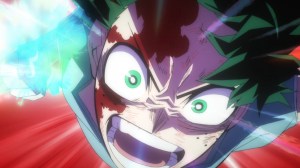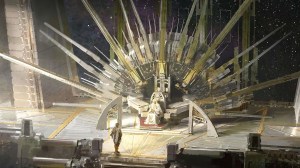David Lynch, one cinema’s greatest and most unique filmmakers, passed away last week at the age of 78 and his passing not only prompted an outpouring of praise for the legendary creator but also has resulted in a surge of interest in some of his most iconic and indelible projects. The critically acclaimed series Twin Peaks is available to stream on Pluto TV and there has been plenty of discussion about some of his bigger films such as Mulholland Drive, Blue Velvet, and Lost Highway. But while there is no wrong answer to the question “what David Lynch movie should I watch?” there is one movie that perhaps doesn’t get quite as much attention as it should — and is a film that should certainly make it to the top of your list: The Straight Story.
Videos by ComicBook.com
Released in 1999, The Straight Story is a bit of a departure from what most people would associate with Lynch’s work, which is known and praised for juxtaposing surreal and sometimes sinister elements with the everyday and exploration of the darker elements of the human experience. The Straight Story is a biographical road drama that is based on the true story of Alvin Straight’s trip across Iowa and Wisconsin on a lawn mower in 1994 as he seeks to visit his estranged brother and make amends before he does. The plot of the film, like many Lynch projects, is a little quirky. Alvin embarks on his journey with the lawn mower because he’s unable to get a driver’s license due to health issues of his own, but the story being told is less about the destination or the method by which Alvin gets to it but the journey itself. For Alvin (played by Richard Farnsworth, who received an Academy Award nomination for his role in the film), his trip across the countryside sees him interact with various people and experiences along the way, each one working to help Alvin confront his own issues and demons and undergo a personal transformation in the process.
There are a handful of things that might surprise most viewers about The Straight Story. It’s a G-rated Disney movie, for starters. In fact, it is Lynch’s only film to receive a G-rating. It doesn’t really have a supernatural or sinister element to it that many Lynch projects have. It’s also notably less surreal than some of Lynch’s more well-known works. Instead, the film incredibly straightforward and in some ways, very simple in the story it is telling. That said, The Straight Story may be the most Lynchian of all of his films The film, while eschewing some of the bizarre and surreal, still coalesces around familiar themes in his other work, namely regret, fate, and the experiences of life. Just as in all of Lynch’s films, there are elements of kindness as well. The Straight Story also finds its home in another common element of Lynch’s work: the examination of American culture — this time, the rural small-town Midwest. The result is a meditative look at the human condition, as is the case with much of the filmmaker’s other work, here looking at the complex and sensitive subjects of trauma, aging, and human mortality as part of a larger tale about healing.
[RELATED: David Lynch Was Developing a Project for Netflix Before His Death, According to CEO]
There’s also something to be said about how Lynch captures the beauty of the American Midwest. The film was shot, in sequence, in the fall, on the same roads that the real Alvin Straight took on his lawnmower journey. This led to beautiful images, of autumn leaves turning colors. While the journey in the story as much about Alvin dealing with his own demons to make amends with family, it’s also a visual journey. Time passes on Alvin’s journey — in real life, Alvin’s journey took place over six weeks starting in July 1994, spanning the time when the season truly begins to change. Visually, Lynch captures that concept of change right alongside Alvin’s story, lending the film a sense of romanticization, both of setting and of subject, without falling into thick sentimentality. Instead, The Straight Story is a love letter to some of the hardest aspects of the human experience – one that has the heart to be honest rather than simply kind.
At the core of his filmmaking, Lynch was a teller of human stories. Even his more surreal and grotesque works were about the human condition and all of its twists, turns, and vulnerability. But while films like Blue Velvet, Lost Highway, and Mulholland Drive key into the more haunting and troubling aspects of humanity, The Straight Story sees Lynch go deeper than perhaps any of his other projects. The result is a gentle, stripped back, and honest celebration of ever moving forward and healing. It shows us something beautiful about the most labyrinth part of being human, and in, turn, is the greatest gift Lynch left us with.
The Straight Story is streaming on Disney+.








